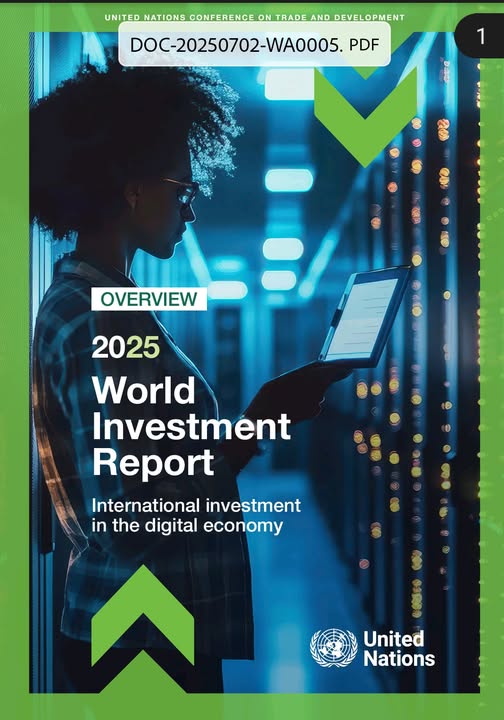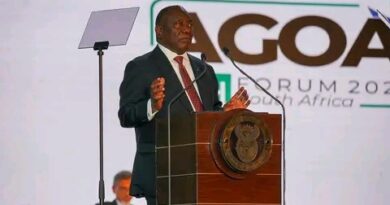Zambia Hailed for Bold Economic Reforms and Debt Strategy in UNCTAD’s 2025 Investment Report
The United Nations Conference on Trade and Development (UNCTAD) has spotlighted Zambia as one of Africa’s most reform-driven economies in its newly released World Investment Report 2025, citing the country’s strong fiscal discipline, debt restructuring progress, and inflation management.
Themed Investment in the Digital Economy, the report highlights Zambia’s strategic economic overhaul, backed by multilateral development partners including the International Monetary Fund (IMF). It affirms Zambia’s efforts to stabilize its economy while implementing structural reforms with an inclusive growth lens.
UN Secretary-General António Guterres noted the report’s focus on bridging the digital divide and advancing the Global Digital Compact. “Now more than ever, we need to work together to chart a course towards a more resilient and sustainable world,” he said.
Zambia’s Minister of Finance and National Planning, Dr. Situmbeko Musokotwane, welcomed the recognition, emphasizing that despite a severe 2023/2024 drought, the economy grew by 4% in 2024 and is projected to exceed 6% in 2025.
He added, “We are pursuing evidence-driven reforms to foster citizen participation, improve the investment landscape, and reduce inequality.”
Recent analyses by Bloomberg also forecast Zambia’s economic rebound, particularly in mining and bond market performance. The Minister attributed this progress to President Hakainde Hichilema’s leadership, public-private cooperation, and youth engagement in governance.
UNCTAD’s report applauds Zambia’s success in tightening monetary policy through the Bank of Zambia, helping tame inflation and stabilize food prices. However, it warns of continued exchange rate volatility linked to global shocks.
In debt restructuring, Zambia is cited as a key participant under the G20 Common Framework, praised for working collaboratively with official and private creditors to restore debt sustainability.
UNCTAD also highlights reforms in Zambia’s tax and energy sectors, including subsidy rationalization and the use of a Medium-Term Budget Plan to enhance fiscal transparency and drive job creation.
Secretary-General Rebeca Grynspan stressed that investment must reflect societal needs, not just economics, and called for stronger digital infrastructure and governance in developing economies.
With growing investor confidence and multilateral backing, Zambia is being viewed as a model for countries navigating debt distress while striving for sustainable development and inclusive economic recovery.



